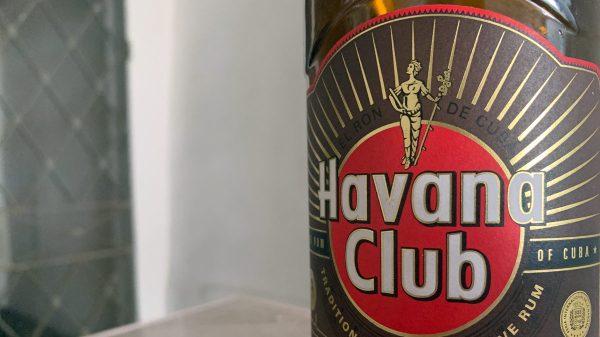Looks like the continuing saga of the rum wars is on again. According to a National Law Journal’s story, Bacardi, the largest spirits company in the world, is back in court pursuing the Havana Club trademark.
Back in the day, Bacardi and the José Arechabala, S.A. were rival businesses in Cuba; not so true now though. The Arechabala family company exported rum to the United States until 1960 when the Cuban government nationalized the company. The Bacardis and the Arechabalas left Cuba in 1960 after the Revolution. The Cuban “Havana Club” brand continued to be manufactured in Cuba and exported to the world. People who travel to Cuba usually bring back a bottle or two of the authentic Cuban rum, “Havana Club,” wrapped up tightly in their suitcase.
The competition between the Arechabala family and Bacardi ended as time moved on and circumstances change, as they always do. The Arechabalas no longer manufactured rum once they moved to Florida. Bacardi, with its own brand of rum, dominated the U.S. Market. Bacardi and the Arechabalas then joined forces when the news emerged of the joint venture business formed between Pernod Ricard, the French liquor giant, and CubaExport, Corporación Cuba Ron.
From 1973 to 1976
Over time, the Arechabala family let their American trademark for Havana Club expire by not renewing. In 1973, the Havana Club trademark was due for renewal. At this point, anyone wishing to do so could have registered the trademark. In other words, it was up for grabs. Cuba renewed the lapsed trademark in 1976.
In 1993
In 1993, the news broke that Pernod had signed a joint venture agreement with Cubaexport to create the Havana Club International company. This year can be identified as the beginning of “the rum wars.” The joint venture between Pernod and Cuba Ron proved to be a massive success worldwide. The Cuban “Havana Club” became the third most popular rum in the world. Currently, the Havana Club brand is sold to more that 120 countries.
In 1994
Bacardi is claiming they are the rightful owners of the Havana Club trademark, a brand that was first made in Cuba by their competitors, José Arechabala, S.A. In 1994, Bacardi paid the Arechabala family $1.25 million for any rights they still had to the Havana Club brand as well as a percentage of sales. And so the rum wars began.
Bacardi believes it owns the original recipe for Havana Club as well as the trademark because of the 1994 deal with the Arechabalas. However, the U.S. Treasury Department permitted Pernod to register the trademark in 2016, probably recognizing the fact that Havana Club is a Cuban rum made in Cuba.
Since that time, Bacardi and Pernod have been in a legal battle that is both cultural and political.
In 1998
In 1998, Bacardi lobbied the U.S. government and eliminated Pernod’s right to the brand name because of issues relating to expropriated Cuban companies. Later in 2001 and 2002, the World Trade Organization overruled this, declaring it singled out Cuba.
The legal counsel for Pernod states that “the moment they abandoned the trademark in 1973, the trademark fell into the public domain.” (true). Their lawyers also pointed out that they (the Arechabala family) could have maintained the trademark for a mere $25 registration fee.
January, 2016
In January of 2016, the Cuban Havana Club brand scored a victory whereby the U.S. Patent and Trademark Office granted Cuba the permission to renew the trademark for Havana Club.
However, in the summer of 2016, Bacardi starting making their own brand of Havana Club rum which is, as the label says, made in Puerto Rico.
September, 2017
Bacardi & Company Ltd and Florida-based Bacardi U.S.A. Inc. filed a Freedom of Information Act lawsuit to find out how the Cuban company got a U.S. License to use the Havana Club trademark. They are accusing the U.S. Treasury of failing to hand over documents related to the renewal of Cubaexport’s trademark registration.
No matter how the never-ending dispute in the rum wars turns out, it will be difficult to convince loyal rum connoisseurs that Havana Club is the Cuban rum. Havana Club’s rum has been fermented and distilled from the molasses of Cuban sugar cane, grown in Cuban soil under a Cuban sun.
Havana Club International produces one of the smoothest rums in the world. It’s a recipe difficult to imitate anywhere else without the Cuban soil, sugar, and sun factors.
If Bacardi were to win the trademark conflict, it will be a bitter win. The world will see it as the victory of a poor loser, tainted by so many other unforeseen things. Havana Club is viewed by the world as a distinctly Cuban rum, a Cuban brand – an authentic branding with a history.
The Havana Club rum wars can be viewed as struggle over the “Made in Cuba” (Hecho en Cuba) brand and Cuban “Identity.” It’s hard to escape the David and Goliath perception. Brand awareness is already deeply ingrained in the global psyche. It would be like Pepsi making claim to the Coke brand and producing a Coke. Loyal Coke connoisseurs will never switch sides and admit, like that famous 1969 Coke slogan, “It’s the real thing.”
Zoe Veraz is a content writer, freelance journalist and regular contributor to the Cuba Business Report.











